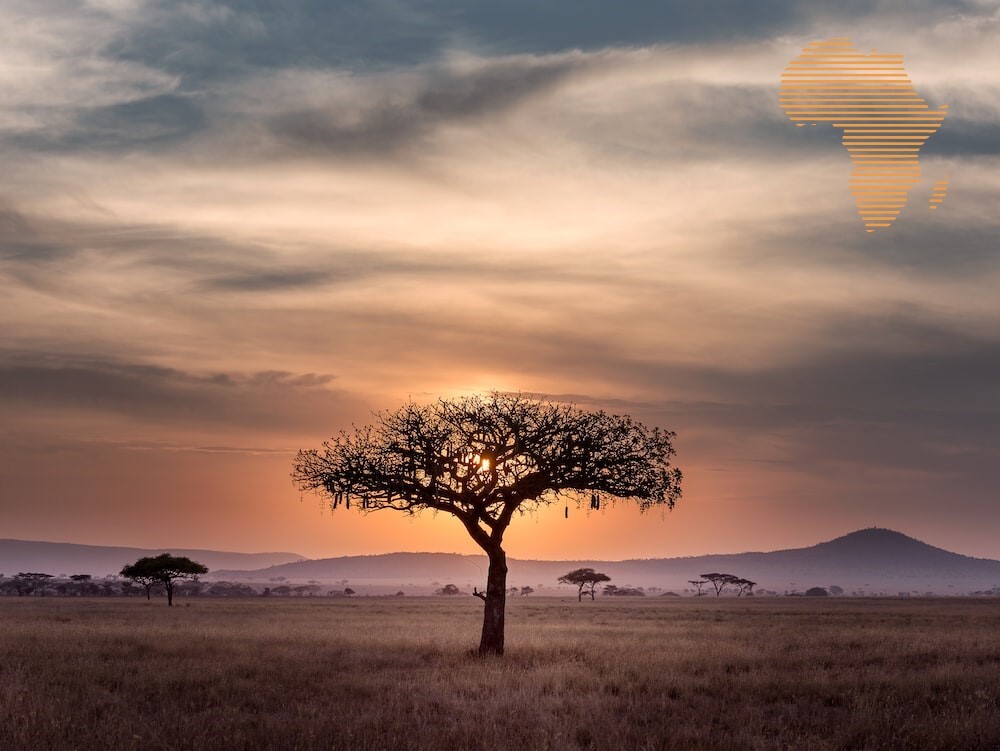
Agriculture is the main source of livelihood for the majority of Africa’s people and it remains the largest economic sector on the continent. The need to enhance the sector’s productivity is therefore critical to achieving sustainable economic growth and poverty reduction in Africa. In this article, we explore topical talking points for the sector with a focus on:
- Food Security
- Climate Change
- Supply Chains and Food Production
Food Security
Food security is a major issue in Africa. Although the continent has an abundance of land and fertile soil, it is often unable to produce enough food to meet demand.
The agriculture sector in Africa is a complex, nuanced system that has been made to seem simple by the international community. The reality is that food security in Africa is a complicated issue with many different facets. The first step toward understanding the current challenges and opportunities of food security in Africa is to understand the landscape of the continent itself.
Africa is an enormous continent, with 54 countries and over 1 billion people. It has a wide variety of climates, from deserts to rainforests; from savanna grasslands to mountainous terrain; from arid regions with only seasonal rainfall to coastal areas where it rains almost constantly throughout the year.
This diversity means that there are many different types of farming practices across Africa, from nomadic pastoralism (raising animals) to Agroforestry (trees used as crops), from subsistence farming (farming without market orientation) to commercial agriculture (farming for market purposes).
In addition to this geographic diversity, there are also cultural differences among African farmers that affect their farming practices: some farmers specialise in growing one crop while others grow multiple crops; some rely on machinery while others rely on manual labour; some use techniques like terracing and irrigation while others do not. These differences make it difficult for outsiders to navigate the landscape and make informed decisions on investing in the agricultural sector in Africa.
These challenges present opportunities for informed stakeholders to enhance food security in Africa by investing in different aspects of the agricultural supply chain, for example: access to markets, improved infrastructure (roads), better seeds/technology/farming practices/access to water sources etc.
Climate Change
Climate change has been a threat to agriculture in Africa for a long time. It is also a global issue, affecting all countries and their food security.
The agricultural sector is one of the most vulnerable sectors to climate change in Africa due to its reliance on natural resources such as rainwater or soil moisture for production. Climate change affects crop yields directly by reducing rainfall levels and indirectly through increased temperatures that adversely affect plant growth and yield potentials. A warming climate will also influence rainfall patterns, which may lead to more frequent droughts with increasing severity across parts of southern Africa especially during the growing season from March to October (Deressa et al., 2018).
This has implications for food security because agriculture contributes around 25% towards GDP while employing almost 70% of the labour force in African countries (FAO, 2009).
On the other hand, climate change can also present new opportunities for agriculture in Africa by creating new markets for exports such as drought-resistant crops or drought-tolerant livestock breeds which may be able to survive better in hot climates than those traditionally used by farmers in the region.
While climate change is a problem that needs to be addressed worldwide, it’s also an opportunity for Africa. Africa is one of the most fertile places on earth, and if we can harness the power of technology to help farmers adapt to new conditions and produce better crops, we’ll be able to feed not just our own people but also those around us.
Supply Chains and Food Production
The supply chain in the agricultural sector is complex and fragmented, with multiple actors involved both within and outside the continent. This makes it difficult for farmers to get better prices for their products and for consumers to access fresh produce at good prices. In addition, there is also a lack of investment in research and development (R&D).
In order to optimise supply chains for enhanced agricultural output in Africa, we need to look at both the demand side and the supply side. On the demand side, there are many opportunities for improvement:
- we can make sure that farmers have access to the right seeds, fertilisers, equipment, and training;
- we can provide them with financing options;
- we can create markets for their products; and more.
On the supply side, we need to address infrastructure concerns such as roads and railroads as well as developing adequate logistics capabilities.
To optimise supply chains for enhanced agricultural output in Africa, we must take into account both sides of the equation so that farmers can get what they need when they need it while also having access to markets for their products. Investors looking to invest in the agriculture sector in Africa will find opportunities on both sides of the aisle.
Emerging Africa Advisory group has been active in this regard by advising several banks on a USD 20 million revolving facility for an outgrower financing scheme for farmers in the sector.
The continent is one of the fastest-growing regions for food consumption, with per capita consumption expected to increase by 50% between now and 2030. This growth presents an incredible opportunity for investors looking to get in on the ground floor of this growing market.
As the population of Africa continues to grow, the need for food production increases. In fact, it is estimated that by 2050, the continent’s population will have increased by 1.3 billion people. That’s a lot of mouths to feed!
Based on the foregoing, there are several opportunities for investment in the African food production industry, including:
- Agricultural land infrastructure development
- Agricultural equipment manufacturing and sales
- Processed food production and distribution
AfCFTA and the Agricultural Sector in Africa
The African Continental Free Trade Agreement(AfCFTA) presents a unique opportunity to unleash substantial economic growth and inclusive development across Africa. For the Agricultural sector. It aims to promote agricultural transformation and growth in Africa and contribute to food security, as well as improve competitiveness through regional agricultural value chain development and incentivize critical investments in production and marketing infrastructure.
The implication of the agreement, which creates a single African market for more than a billion consumers with a combined GDP of over USD 2.5 trillion, is that investors in the agricultural sector can now invest at scale to access the African market as a whole seamlessly with substantial potential for ROI.
Conclusion
The continent’s rich soil, diverse climate and abundant water resources make it an ideal place to grow food. However, high levels of poverty, poor infrastructure and lack of access to markets remain key challenges for the agricultural sector in Africa. The good news is that there are many opportunities for investment in Africa’s agricultural sector that could help address these issues by improving productivity and increasing incomes for farmers.
Overall, Africa will prioritise agricultural growth in light of the food security challenges that lie ahead. It is predicted that there may well be a considerable increase in the demand for food imports as arable land dries up and weather patterns shift creating harsher climatic conditions (Crops and climate).
Furthermore, the development of supply chains across the continent could lead to opportunities for investment in agriculture in the medium term.
Looking to explore investment opportunities in the agricultural sector in Africa? Get in touch with us today. At Emerging African Advisory Group, our network of professionals have decades of experience in the Agricultural sector across different African countries and are on hand to help you navigate the sector and make the best investments decisions in the sector.
